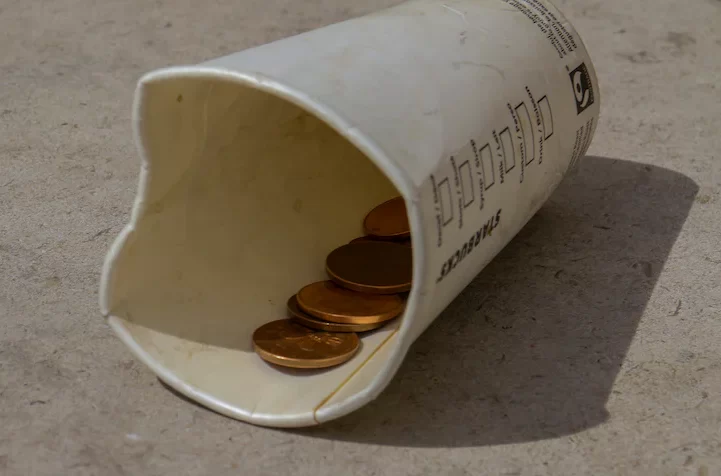The UK fell into a technical recession at the end of 2023 as GPD dropped by 0.3% between September and December, it was announced on Thursday by the Office for National Statistics.
A recession occurs when the economy, which is measured by Gross Domestic Product (GDP), falls over two consecutive three-month periods, or two quarters.
GDP is the value of all the goods and services that the UK produces.
However, the UK economy actually grew by 0.1% across the whole of 2023, leading some to refer to the recession as “shallow” and to define it as more of a “stagnation” than a “decline”.
But the UK’s economic growth is still significantly lower than many of the world’s largest economies, the US’s GDP increased by 2.5% across 2023 and the Eurozone had a 0.5% growth in GDP.
Negative economic growth is usually a sign that people are spending less money which harms businesses.
When people spend less on goods and services, businesses look to stay afloat by reducing costs and raising prices.
The higher prices mean that consumers spend even less, and demand decreases further.
Businesses may also look to reduce employment to save costs, but lower employment will reduce the amount of money that people have to spend on goods and services which only deepens the cycle.
Reduced wages means the government will generate less revenue through tax so they will have less to spend on public services such as health, education and benefits.
In an attempt to move out of a recession, The Bank of England, which is independent of the government, will usually cut interest rates making it cheaper for businesses and households to borrow money which can boost economic growth.
But inflation is still at 4% in the UK, double the Bank of England’s 2% target, meaning that prices of everyday items have been increasing.
To combat inflation the Bank of England raised interest rates making it more expensive to borrow money.
With the economy struggling to grow, while at the same time there is high inflation it can be difficult to improve the financial situation because these problems require different solutions.
Recession can also increase inequality in society, with the gap between the rich and the poor widening.
Those with higher savings and a secure income will likely be better off, while people who receive benefits will struggle more, especially if the government cuts costs to public services.
News of the UK entering a recession, even if it is only a technical one, will be a blow to Prime Minister Rishi Sunak, who made “growing the economy” one of his five key pledges.

